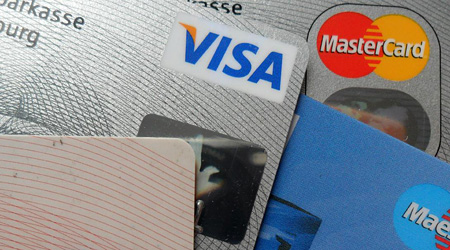Credit Cards Vs Charge Cards

The difference between a charge card and a credit card is that a charge card is not a revolving account, which means it needs to be paid in full each month, and it does not have a credit limit. Charge cards normally require applicants to have excellent credit histories but will often reward account holders with various perks.
Due to the balance being paid in full each month, charge cards come with no interest rate or minimum monthly payment. While this can be limiting to account holders used to revolving lines of credit, others may find a benefit in the inability to accumulate ever increasing amounts of debt. Needless to say most consumers carry standard credit cards for this very reason.
Credit cards, unlike charge cards, offer more flexibility because they allow the card holder to carry debt from month to month so there is less pressure to pay the balance in full. This come with the caveat though of having interest charges accrue and be applied to the principle balance which over time can become significantly more than what was initially purchased. Regardless of the drawbacks, credit cards are the primary form of credit for most consumers. There are only a few charge card issuers and only one major issuer, American Express.
American Express however offers various types of credit to consumers in addition to credit cards. Most individuals are unable or unwilling to have an obligation where 100% of outstanding debt must be paid in full each month. The perks and other benefits are usually overshadowed by the inherent lack of flexibility that charge cards offer. Consumers have spoken and credit cards often offer better terms with greater flexibility for both payments and interest rates.
Higher income individuals with the ability to pay off balances may find it beneficial to utilize a charge card for making large purchases. Most consumers, however, would rather pay a small penalty in the form of interest to have the ability to defer paying off a balance should the unexpected happen and financial resources are needed elsewhere.







